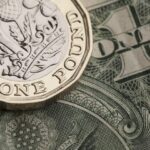 The yen advanced against the US dollar on Wednesday, after yesterday the new Federal Reserve Chairman Janet Yellen told US lawmakers that monetary policy will remain accommodative, even though the central bank will continue scaling back its stimulus in measured steps.
The yen advanced against the US dollar on Wednesday, after yesterday the new Federal Reserve Chairman Janet Yellen told US lawmakers that monetary policy will remain accommodative, even though the central bank will continue scaling back its stimulus in measured steps.
USD/JPY touched a session low at 102.42 at 01:00 GMT, after which consolidation followed at 102.48, losing 0.14% on a daily basis. Support was likely to be received at February 11th low, 102.08, while resistance was to be met at February 11th high, 102.70.
Greenbacks demand was pressured following the new Federal Reserve Chairman Janet Yellens remarks that suggested monetary policy is likely to remain loose for a prolonged period of time.
Janet Yellen told yesterday the Republican-controlled House Financial Services Committee, the Fed will “likely reduce the pace of asset purchases in further measured steps at future meetings”, if the labor market continues to recover and inflation rises.
She underscored “continuity” in the Federal reserve monetary policy, emphasizing that she strongly approves the approach of her predecessor, Ben Bernanke.
The current monthly bond-buying program was started in September 2012 and since then the US jobless rate has declined 1.5% to reach a 5-year low at 6.6% in January. However, according to Yellen the rate remains “well above levels” the central bank regards as consistent with maximum sustainable employment.
The Fed Chairman also reiterated that the pace of cutting back Fed stimulus was not on a “preset course”, and added the central bank planned to keep interest rates at zero “well past” the time the jobless rate falls below 6.5%.
“Very, very accommodative monetary policy in the U.S. is on the cards for a long time, even if the Fed does proceed with stimulus reduction of $10 billion a meeting as the market is expecting,” said Derek Mumford, a director at Rochford Capital, a currency risk-management company in Sydney, cited by Bloomberg. “In the very near term, the dollar against the majors could be quite weak.”
The central bank announced its decision to reduce monthly monetary stimulus by 10 billion USD to 65 billion USD at the meeting on policy in January, underscoring that labor market indicators, which “were mixed but on balance showed further improvement”, while nation’s economic growth has “picked up in recent quarters.” Fed policymakers are to hold their next meeting on March 18th-19th.
The Federal Reserve will probably continue to pare stimulus by $10 billion at each policy meeting before exiting the program in December, according to a Bloomberg News survey of 41 economists, conducted on January 10th.
Meanwhile, a report by the Japanese Cabinet Office today revealed the nations core machinery orders declined by 15.7% in December, the most since 1998. In November the bookings increased by 9.3%, while analysts predicted Decembers core machinery orders will drop 3.8%. On year-over-year basis, core machinery orders slowed their growth to 6.7% in December, almost three times less than analysts forecast and after a 16.6% advance in the previous month.
There are growing speculations that BoJ will have to increase the scale of its asset-purchasing program this year, which weighs on yen’s demand. Bank of Japan has been purchasing more than 7 trillion JPY (68.4 billion USD) of government bonds each month in its struggle to achieve 2% inflation in two years since April 2013.
In a Japans Nikkei newspaper interview, cited by Bloomberg, policy board member Takahide Kiuchi said that: “Additional monetary easing to offset the effect of a sales tax increase in April may have negative side effects”.
Effective from April, the sales tax will rise to 8% from the current 5% level.
The yen devalued 18% against the US dollar last year, the most since 1979, but in January the currency rebounded 3.2% as a slump in emerging markets, fueled demand for haven assets, such as the yen.
A Bloomberg News survey of 35 economists, showed an unanimous forecast that the BoJ will expand its monthly bond purchases program worth 7 trillion yen, with only two of the respondents predicting the central bank will achieve its inflation goal by the target period, April 2015.
Elsewhere, AUD/USD reached a session high at 0.9068 at 6:05 GMT, also the pair’s highest point since January 13th, after which consolidation followed at 0.9061, rising 0.27% for the day. Support was likely to be received at February 11th low, 0.8945, while resistance was to be met at January 13th high, 0.9086.





